Elderly New

A speech takes for granted the world of Euskera. It is heard and accepted by the structures of the Basque Country, I think. We know that in recent years we have been exhausted by strength and courage, that it is difficult to revitalise, that the Basque country has not done before, that it has not imposed itself. We have this idea, because we are not blind, because we have not lost the north. That discourse is not surprising, it's not new and I would say it's expanded.
For example, in mid-summer, an opinion column entitled Euskalgintza zaharra and berria was extended in various Basque media. In line with fresh conceptualization, the analysis was associated with a pessimism with an optimistic view, indicating that the streets are filled with members of the new Euskalgintza and that they bet on the future.
I felt undecided, especially because the way to name it seemed inappropriate to me. In fact, in a few words I have felt contempt for what I would call something more traditional than the Old Basque Country, the workers, the structures, all in a very general way, without appointments, gathering north and south. On the contrary, the definition of the new Euskalgintza was vague, meriting concretion.
It is said that the old Euskalgintza should be thrown into a pile of pigs, because it is formed by the ema and the lost man, who pacts with the dominant powers. It's partly true. Yes, in recent years, at least in the continental Basque Country, almost all Basque structures have agreements with the public authorities. These are alliances that were sought. They serve to channel the work of different people, pay their fees, entertain the premises and offer services for their development. Were those alliances? It's possible, but at the point where we were there was no other way out, we're not going to extend into historical chronologies. This has its drawbacks: dependence, to start the economy, continuous negotiation, at a low speed. Without that there would be no teachers at the ikastolas, there would be no Basque media, there would be no night schools, there would be no much cultural production.
I would not describe the old people of Euskalgintza as repulsively, deceiving the enemies. If I attacked someone, I wouldn't despise Euskalgintza, because the few are for others, to start by not having their own institutions. The new world of Euskera brings illusion. In recent years we have heard of it, they say that there is a new, renewed movement. Things are not so clear when you ask them where they are, who they are. In the margin of the traditional Basque culture, we see a non-institutional Euskalgintza: spread in small nuclei through the territory, liquid, that performs quick and short, diverse mobilizations, almost at the level of the happening. Yes, there are a lot of groups on the periphery, a lot of initiatives. Yes, they need a more central place in the periphery, excel from isolation and anecdotal. However, I fear that, in one way or another, this new Basque cultural activity is not dependent on: small financial aid, for example, a local, or the support of an elected one.
A “new Euskalgintza” is needed. We are all waiting to see when it will be structured, to see when the third force we can call will appear, the third force, without subordinations, so that we too will get involved in it, because all the workers, creators, militants are thirsty, just as the others, with new possibilities and dynamics. So is there any announcement of something? Along with the criticisms, because we want proposals or explanations, more concrete than we have read, we would thank them and also support them, because they are years from which we cannot guess.
Ez dakit nondik hasi, egia esan. Ordezkoa naizen heinean –irakaskuntzan ikasturte gutxi batzuk daramatzat lanean– eskola ugari ezagutu ditut Nafarroa, Bizkai eta Araban zehar. Lankide izan ditudan irakasleekin euskal eskolak dituen gabezien inguruan hitz egiten... [+]
Alberto Martinez Eusko Jaurlaritzako Osasun sailburuak argi dio: ez ditu mediku euskaldunak aurkitzen, eta euskarazko osasun arreta ezin da bermatu mediku egoiliar (formazioan dauden espezialista) gehienak kanpotarrak direlako. Mediku euskaldunak bilatzea perretxikotan joatea... [+]
35 film aurkeztu dira lehiaketara eta zortzi aukeratu dituzte ikusgai egoteko Euskal Herriko 51 udalerritan. Euskarazko lanak egiten dituzten sortzaileak eta haiek ekoitzitako film laburrak ezagutaraztea da helburua. Taupa mugimenduak antolatzen du ekimena.
“Gogo eta gorputzaren zilbor-hesteak: bi kate. Bi kate, biak ebaki beharrezkoak: bat gorputzaren bizitzeko, bestea gogoaren askatzeko”. Hala dio Mikel Laboaren kantak; hala izan da belaunaldiz belaunaldi, egun arte.
Gogoan dut nire gurasoak askotan joaten zirela... [+]
Plataformak "atzerapausotzat" hartu du Eusko Jaurlaritzako Etxebizitza eta Hiri agendako sailburu Denis Itxasok berriki iragarri izana lurzoru urbanizagarrietako etxe babestuen proportzioa %75etik %60ra jaistea. Pradales agintera iritsi zenetik alokairu soziala eskatzen... [+]
Martxoak 8an egindako pintaketak gainetik margotu dituzte ikur faxistekin Zuberoako hiriburuan. Horren aurrean elkarretaratzera deitu dute, astelehenean.
Euskarazko eskaintza handitzeko akordioa erdietsi dute EH Bilduk, PSNk, Geroa Baik eta Zurekin Nafarroak
Behe bandako zutabea bezain erlojuaren aurka prestatzen ditut mozorroak, korrika, aztoratuta, zalantzaz, erretxin, estropezuka eta sarri arrakasta ez erabatekoarekin; adibidez, zutabe hau eta biharko mozorroa. Oraindik ez dakit bietako zein bukatuko dudan lehenago. Baina... [+]
Berlinen martxoaren 8an izandako manifestazioa gogorki erreprimitu du Poliziak. Palestinaren aldeko aldarriak zeramatzaten manifestariek. Agintariek Alemanian arabierazko abestiak eta diskurtsoak debekatu dituzte manifestazioetan, "segurtasun publikoko" arrazoiak direla... [+]
Israelek Gazarako su-etenaren urraketa ugari egin ditu urtarrilaz geroztik: zerrendako palestinarrak oinarrizko laguntzarik jaso gabe egon dira ia astebetez, eta Netanyahuk azken egunetan mehatxu egin ondoren, argindarrik gabe utzi ditu orain. Dohan ordezkari estatubatuarrekin... [+]
Hiru bideo dira (albiste barruan ikusgai). Batak jasotzen du, grebak antolatzea leporatuta, Carabanchelen espetxeratu zituzten Jesús Fernandez Naves, Imanol Olabarria eta Juanjo San Sebastián langileak espetxetik atera ziren unea, 1976ko abuztuan. Beste biak Martxoak... [+]
11 adin txikikori sexu erasoak egiteagatik 85 urteko kartzela zigorra galdegin du Gipuzkoako fiskaltzak. Astelehenean hasi da epaiketa eta gutxienez martxoaren 21era arte luzatuko da.
Giza Eskubideen Siriako Behatokiak salatu du gobernuko indarrek gutxienez 800 zibil hil dituztela Latakia probintzian, "odol hotzean". Ahmed al Sharaa Siriako behin-behineko presidenteak iragarri du "batzorde independente" bat eratuko dutela gertatutakoa... [+]













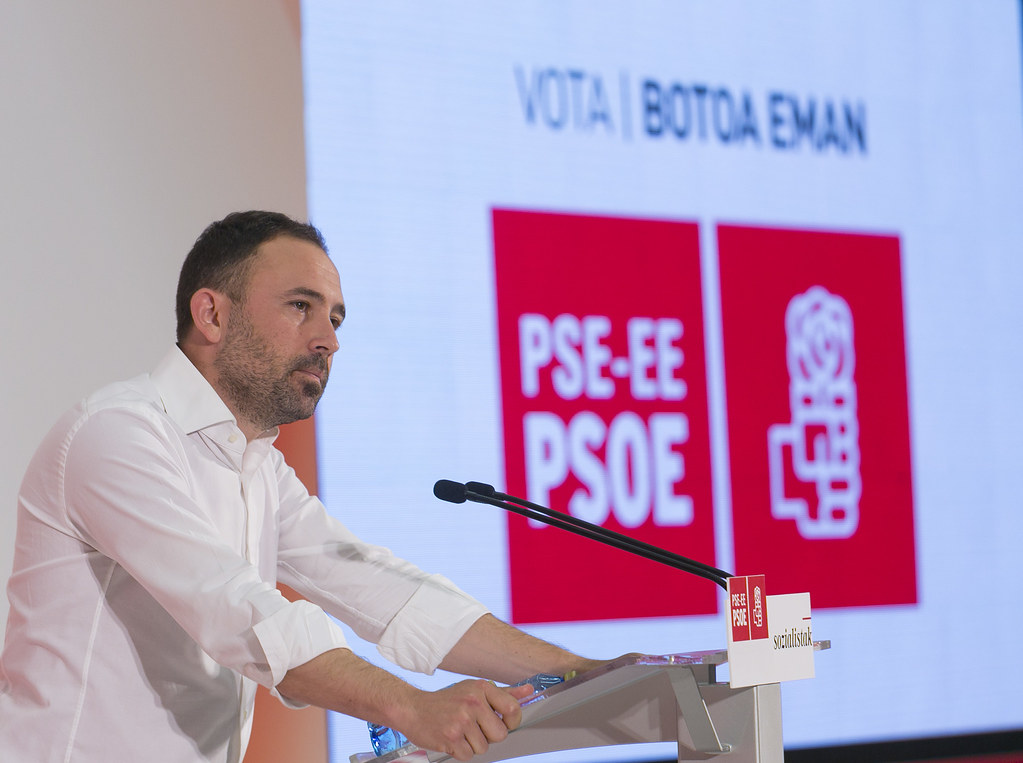
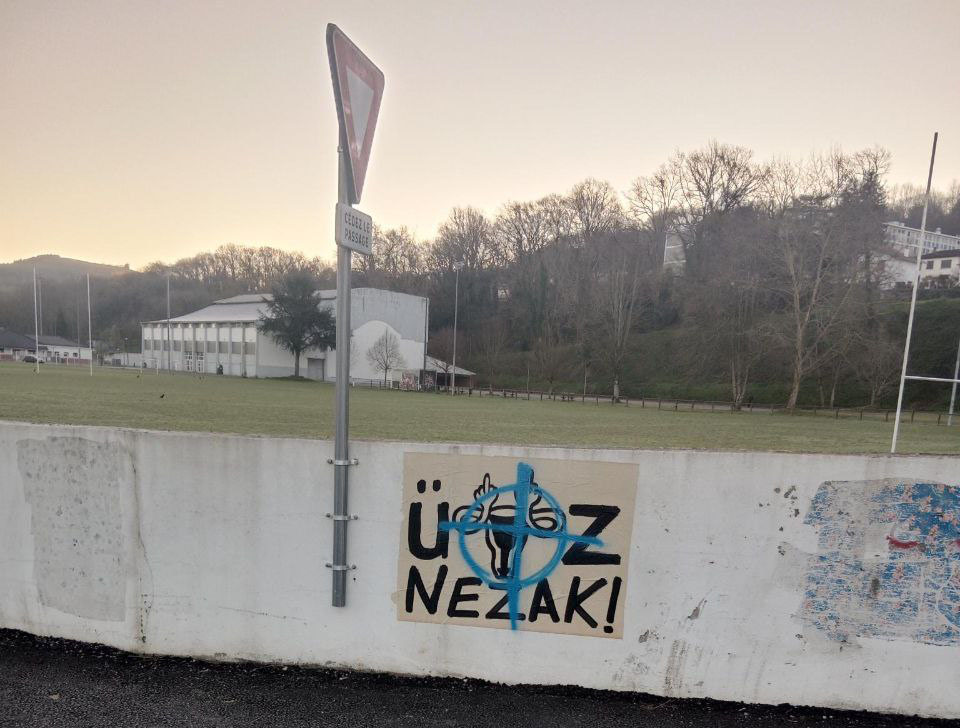
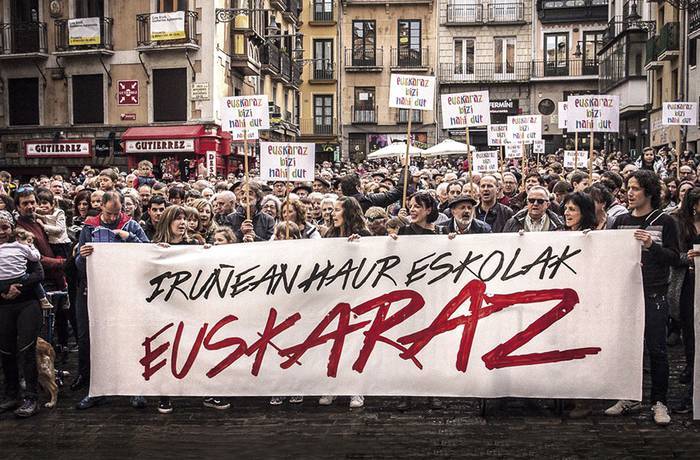

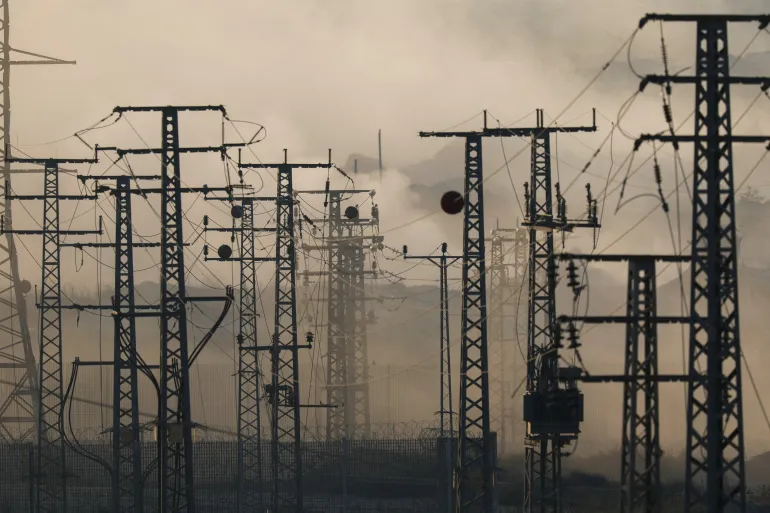
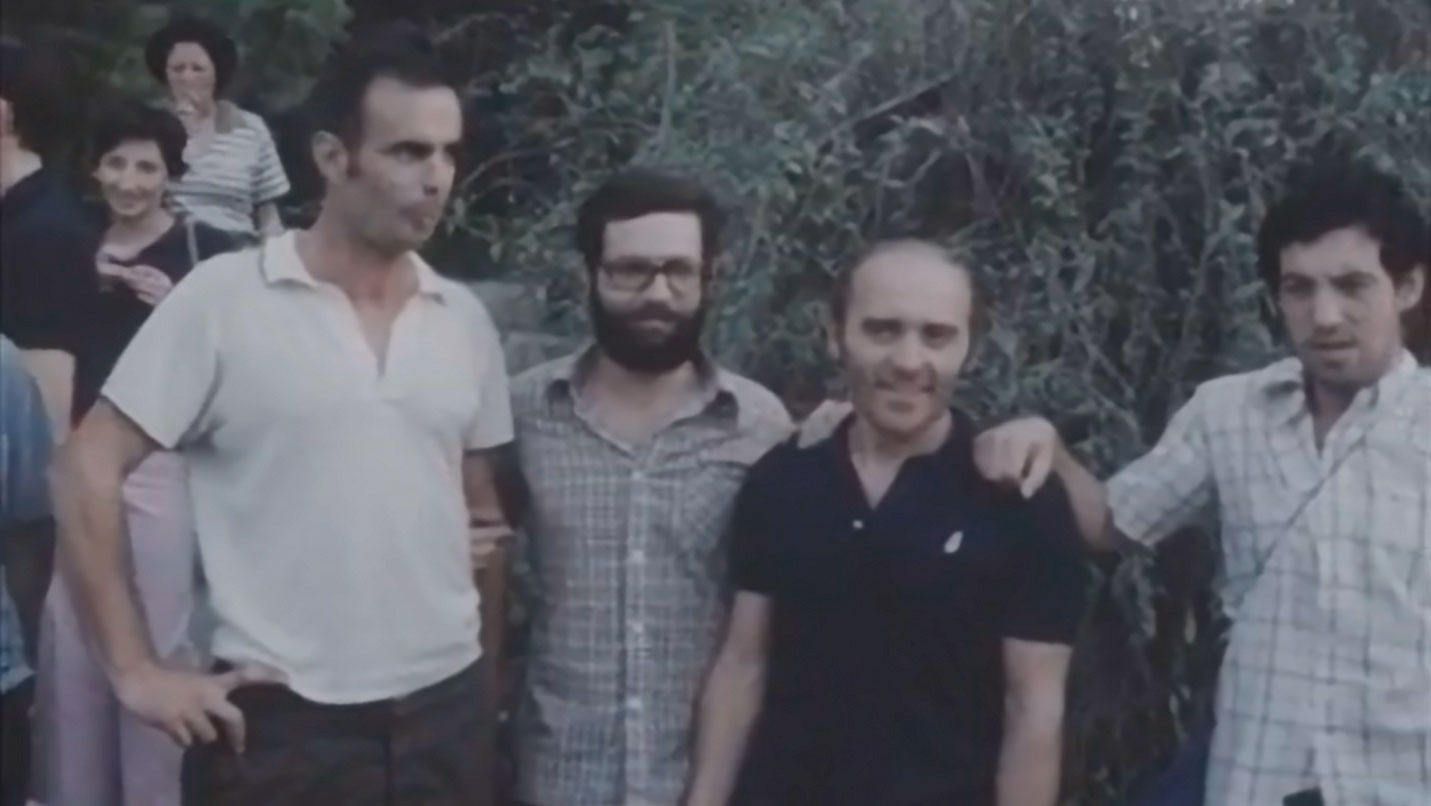

.jpg)